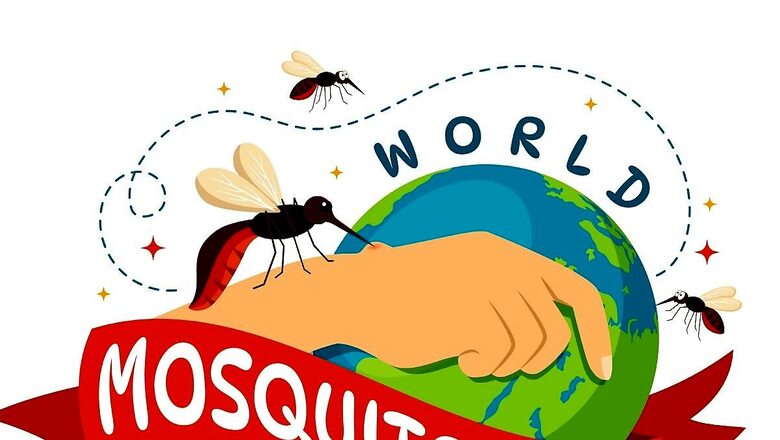
189
views
views
World Mosquito Day aims to raise consciousness about the causes of malaria and its prevention.
WORLD MOSQUITO DAY 2023: World Mosquitos Day is celebrated on August 20 to commemorate Sir Ronald Ross for discovering the connection between mosquitoes and the transference of Malaria in 1897. The objective of the day is to raise consciousness about the causes of malaria and its prevention. Ross discovered that it is the female mosquito that spreads Malaria among humans. The London School of Hygiene and tropical medicine since the year 1939, has been conducting an event to pay tribute to British doctor’s work. Besides keeping people aware, the initiative creates awareness about malaria’s causes and how it can be prevented.
Types of mosquitos
- Asian Tiger mosquitoesAlso known as Aedes albopictus, the mosquito belongs to the tropical and subtropical areas of Southeast Asia. The mosquito has spread to several countries due to the transportation of goods and people. The mosquito is the primary vector of Chikungunya, a virus alike Dengue fever. It also transmits diseases including Dengue, West Nile Virus, and Eastern Equine Encephalitis.
- Yellow fever mosquitoAlso known as Aedes aegypti, it is a mosquito that can spread yellow fever viruses, Zika fever, Mayaro Chikungunya and Zika fever. It can be recognized by black and white markings on its legs.
- Marsh mosquitoIt was named by J. W. Meigen in 1818 as Anopheles or Marsh Mosquitoes. Few species of mosquito can transmit parasites of the genus Plasmodium, which is the reason behind malaria in humans in endemic areas.
- CulexIt is one of the vectors for more than one important disease in humans, birds, and other animals.
- Common House MosquitosAlso known as Culex pipiens, they are the most common mosquitoes. It is known as the northern house mosquito as it is commonly found in the northern region of the US.
- AedesAedes is a genus of mosquitoes found in the tropical, subtropical zone and in continents except Antarctica. Its bite can cause Yellow fever, Chikungunya, Zike, West Nile, and Dengue.
- Culex TrasalisIt is known as the Western encephalitis mosquito. It is widespread in clear water (agricultural areas, untended swimming pools, creeks etc. It generally bites in the night and is responsible for one or more important diseases.
- Aedes VexansIt is the most common mosquito in Europe. Its multiplies in flood water. It is responsible for infecting people with dangerous diseases like Dirofilaria Immitis (dog heartworm), myxomatosis (a deadly rabbit viral disease), and Tahyna virus, a seldom-diagnosed Bunyaviridae virus.
- Aedes triseriatusIt is a known vector of chikungunya virus, dengue virus and dirofilariasis. It is also known as the eastern tree hole mosquito as it bites in the day and lays eggs in small containers where water is accumulated.
Ways to control mosquitoes
- Discard standing water in your homeMosquitoes can breed in a gutter, old flower pot, or bird bath. Keeping mosquito-eating fishes like minnows, mosquito fish and guppies can eliminate mosquitoes. Treating waterfall of fountain water with Bacillus thuringiensis. The bacteria eliminate mosquito larvae but cause no harm to plants, pets, people.
- Wear light-coloured clothes, especially outdoorsAvoid wearing dark-coloured clothes outside as it attracts mosquitoes. Wearing thicker clothing loose fits clothes can offer more protection.
- Use mosquito repellantWearing mosquito repellant containing 30 per cent of DEET can provide protection from mosquito bites. You can also apply picaridin, IR3535, and oil of lemon eucalyptus to stay protected.




















Comments
0 comment